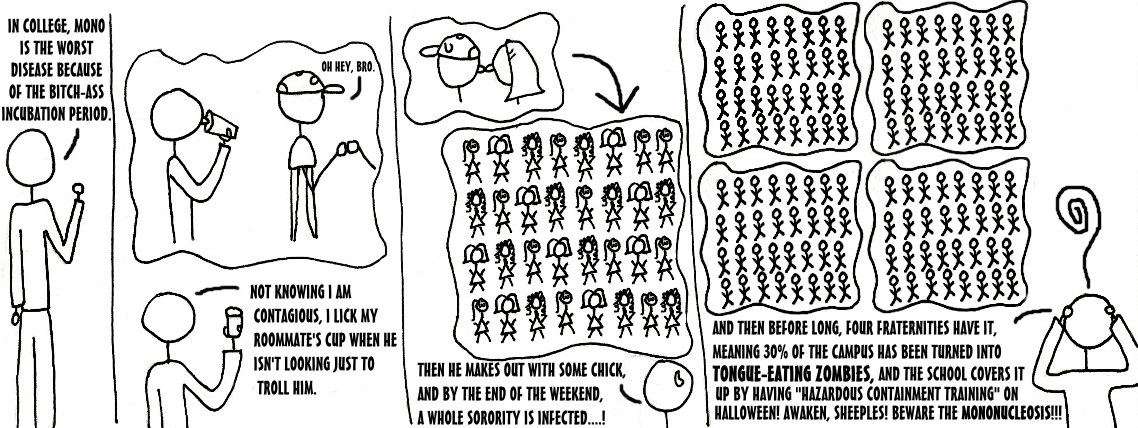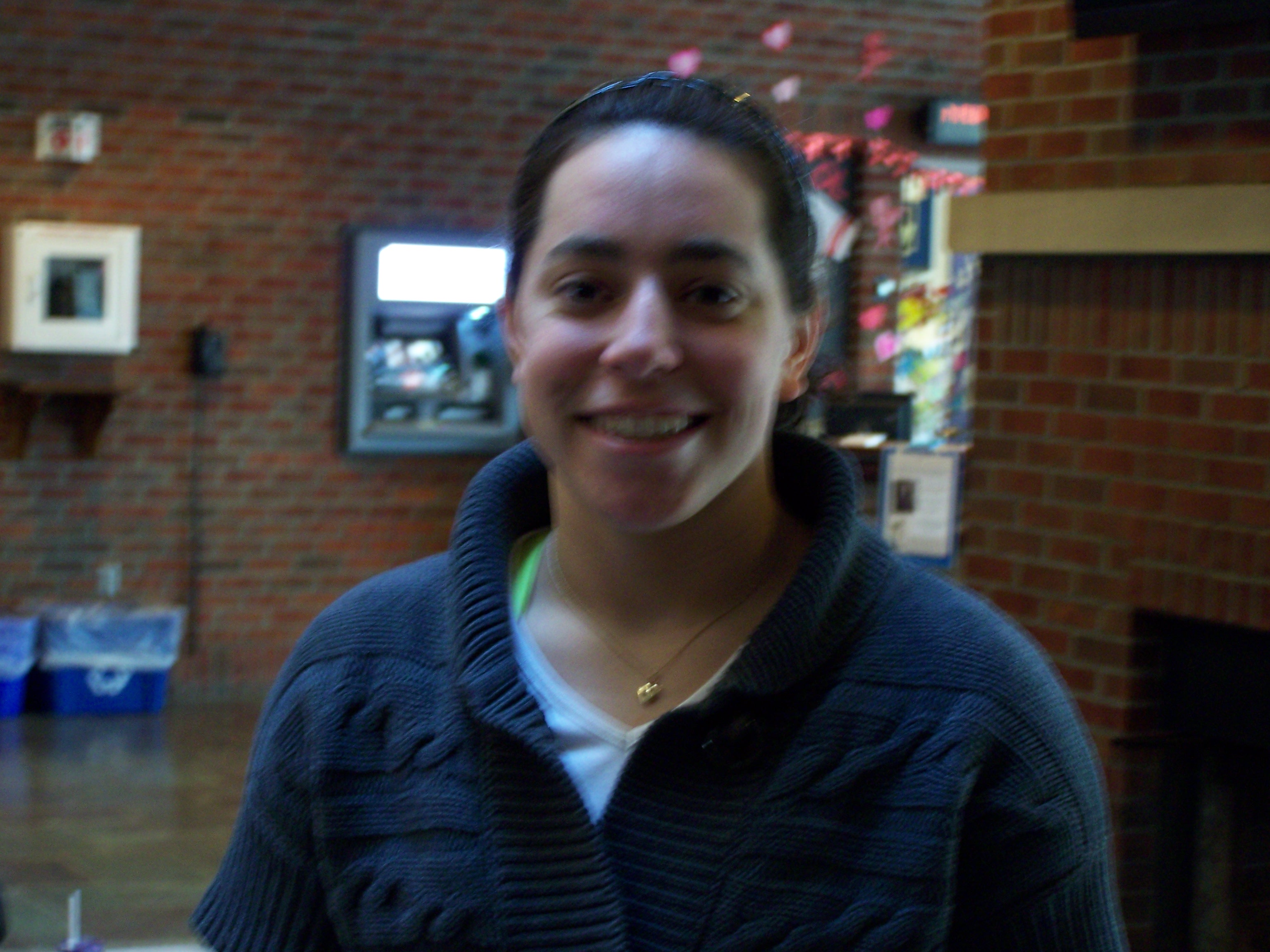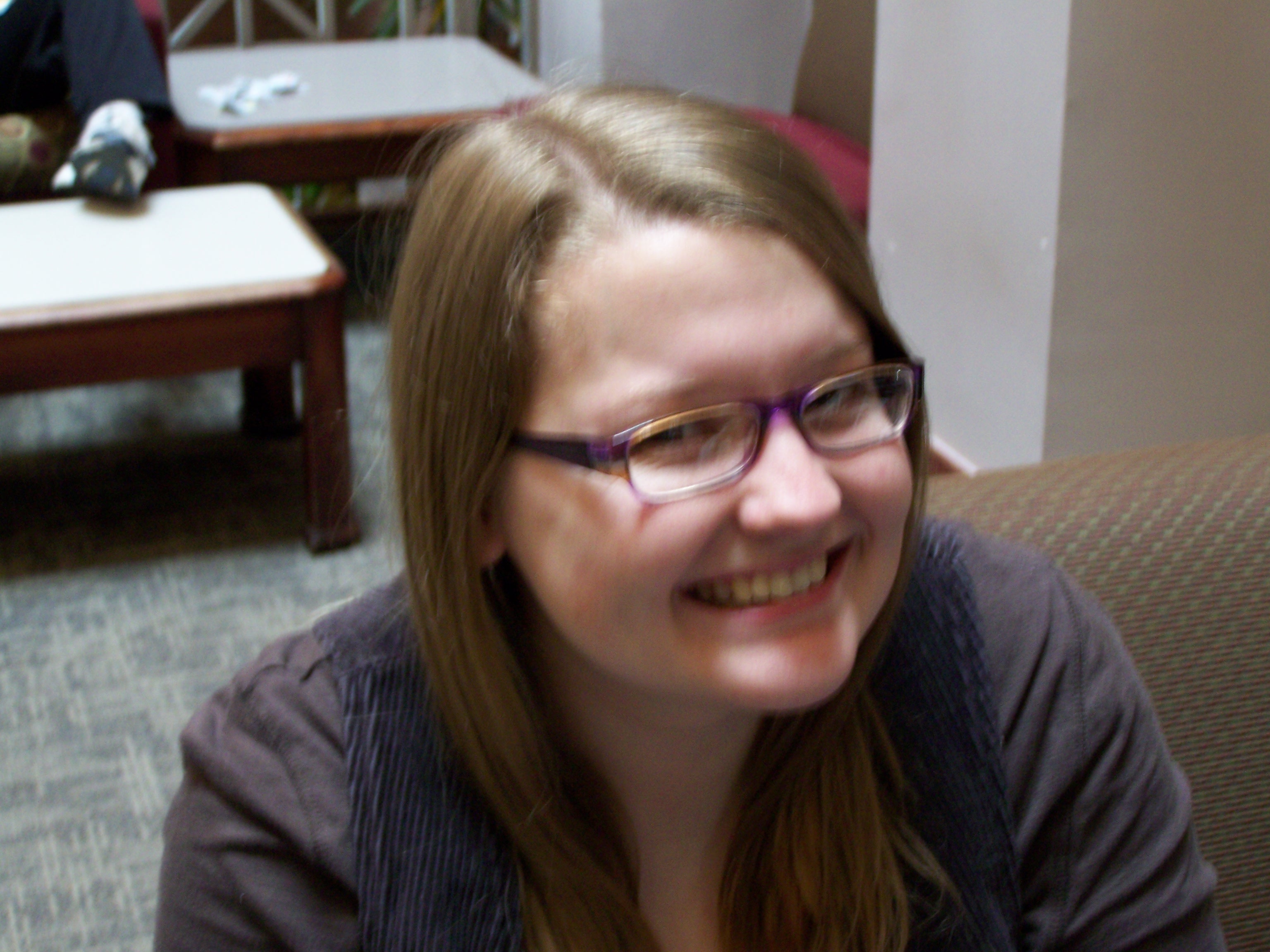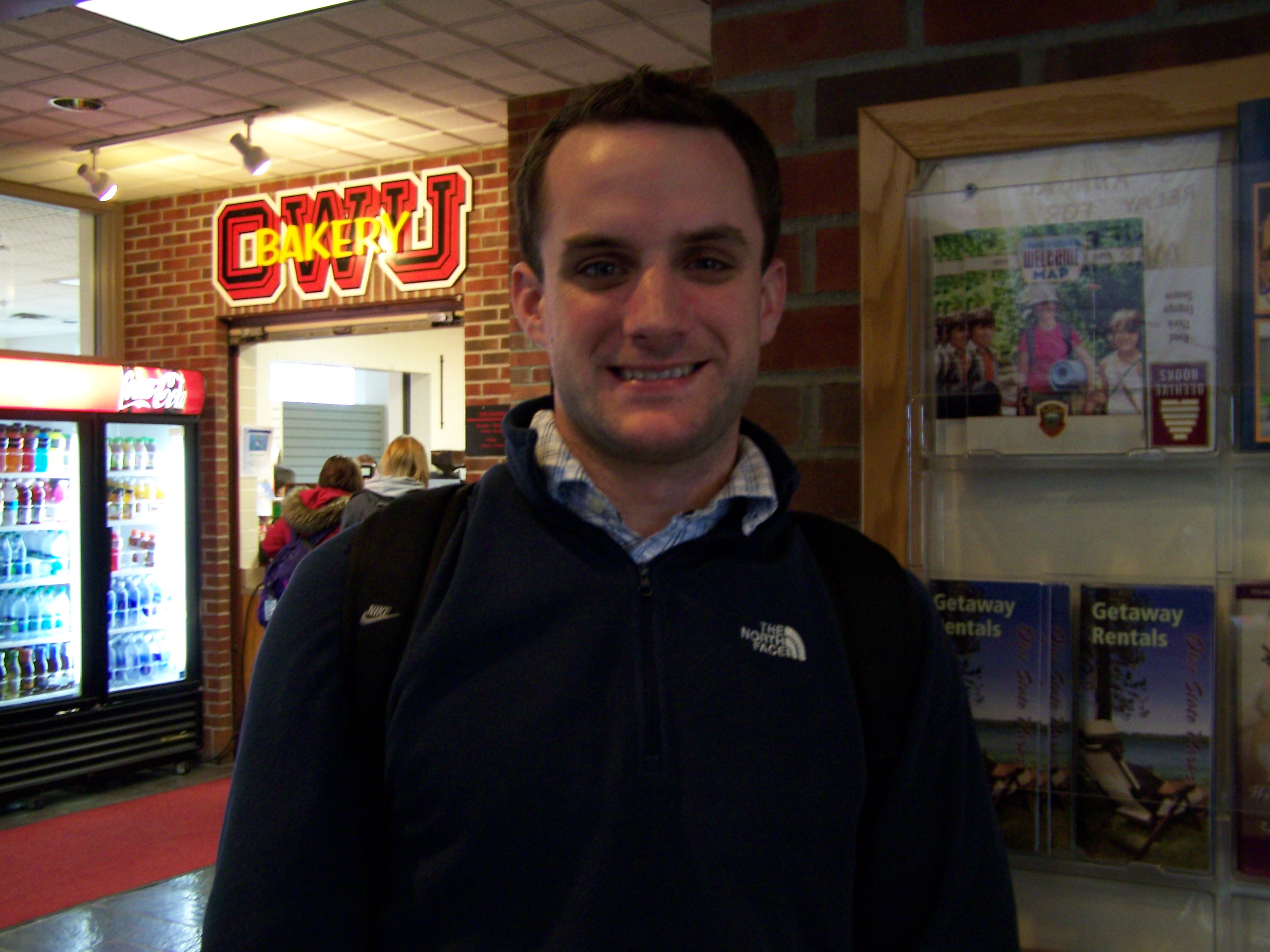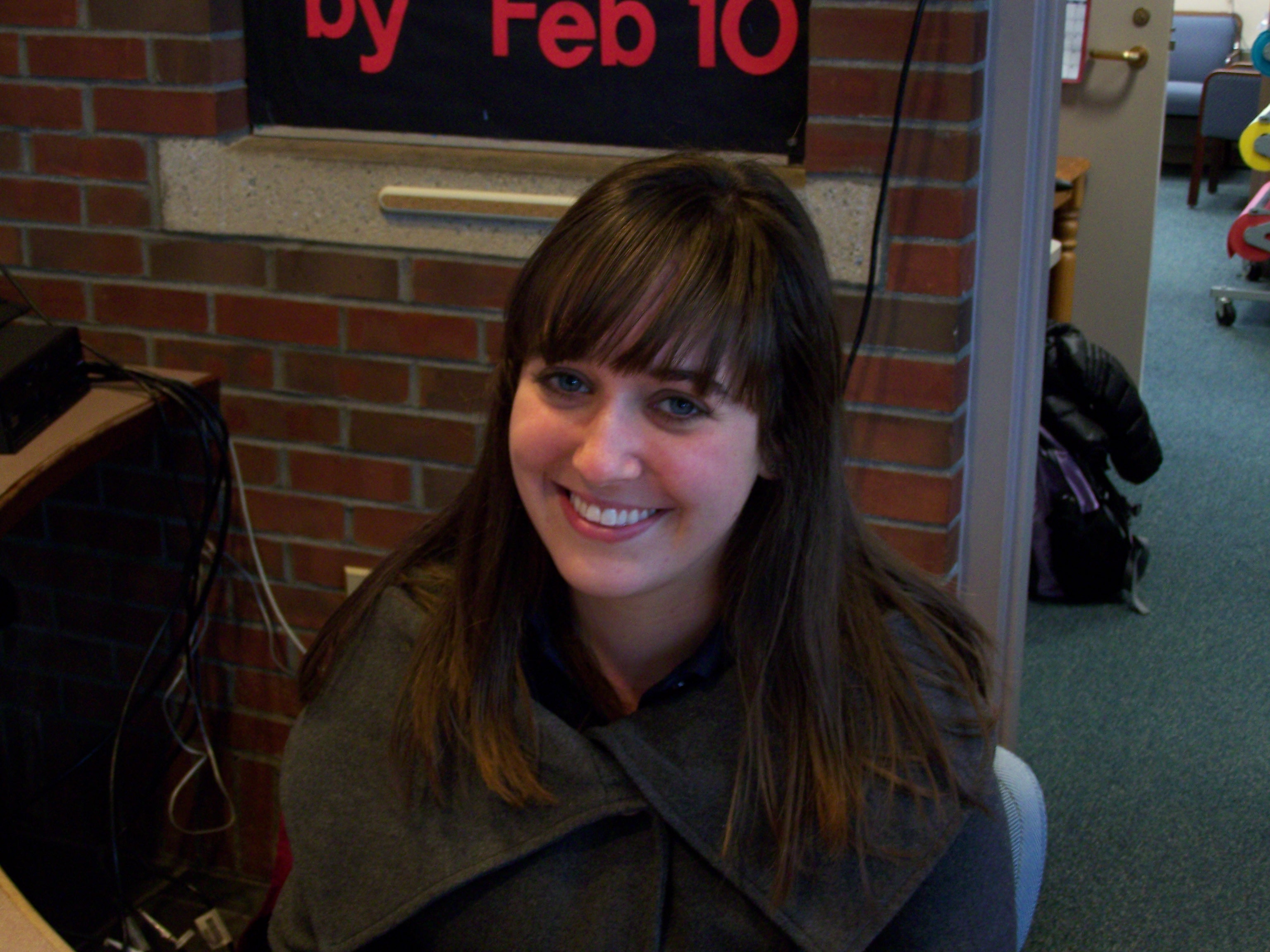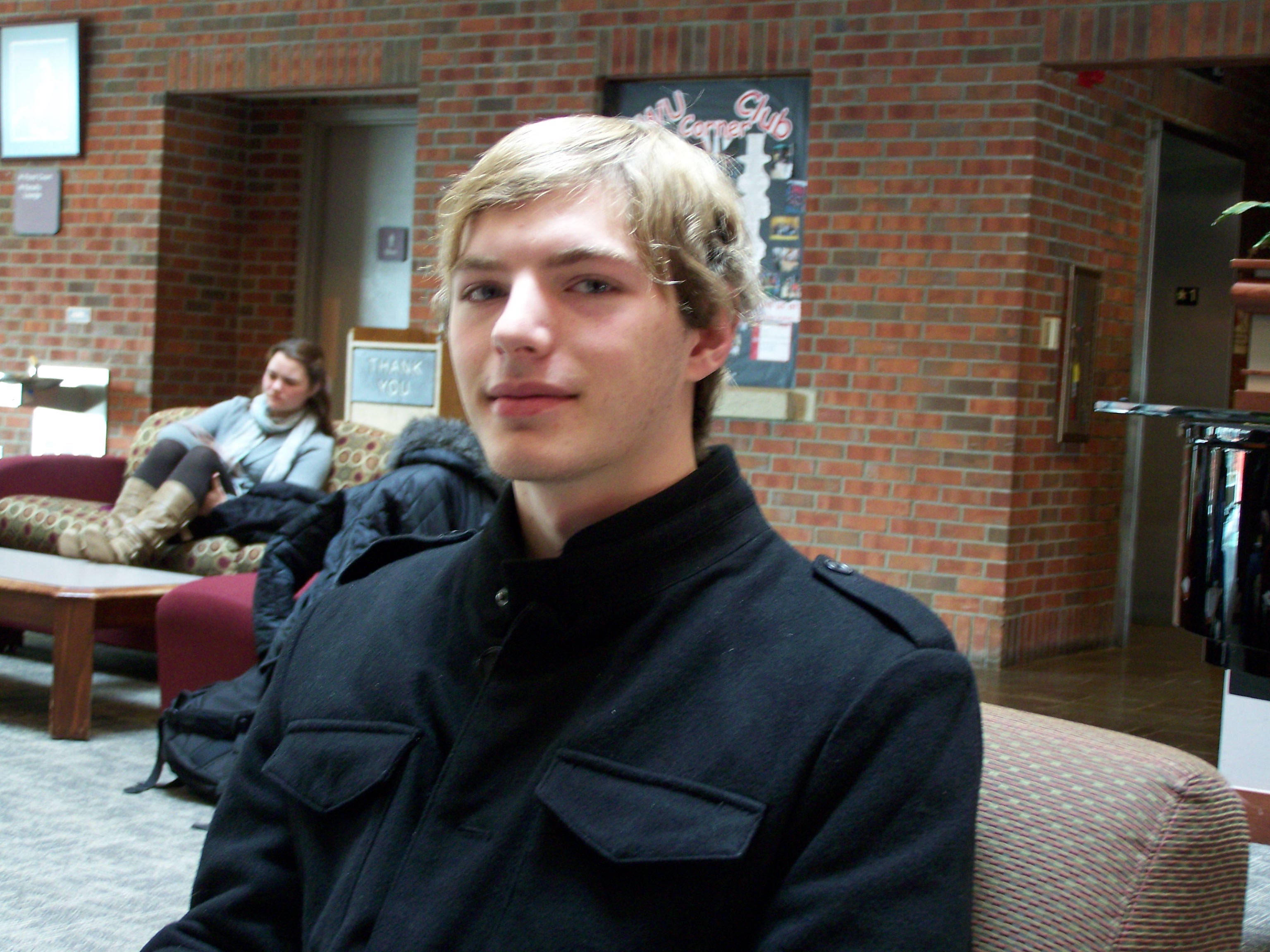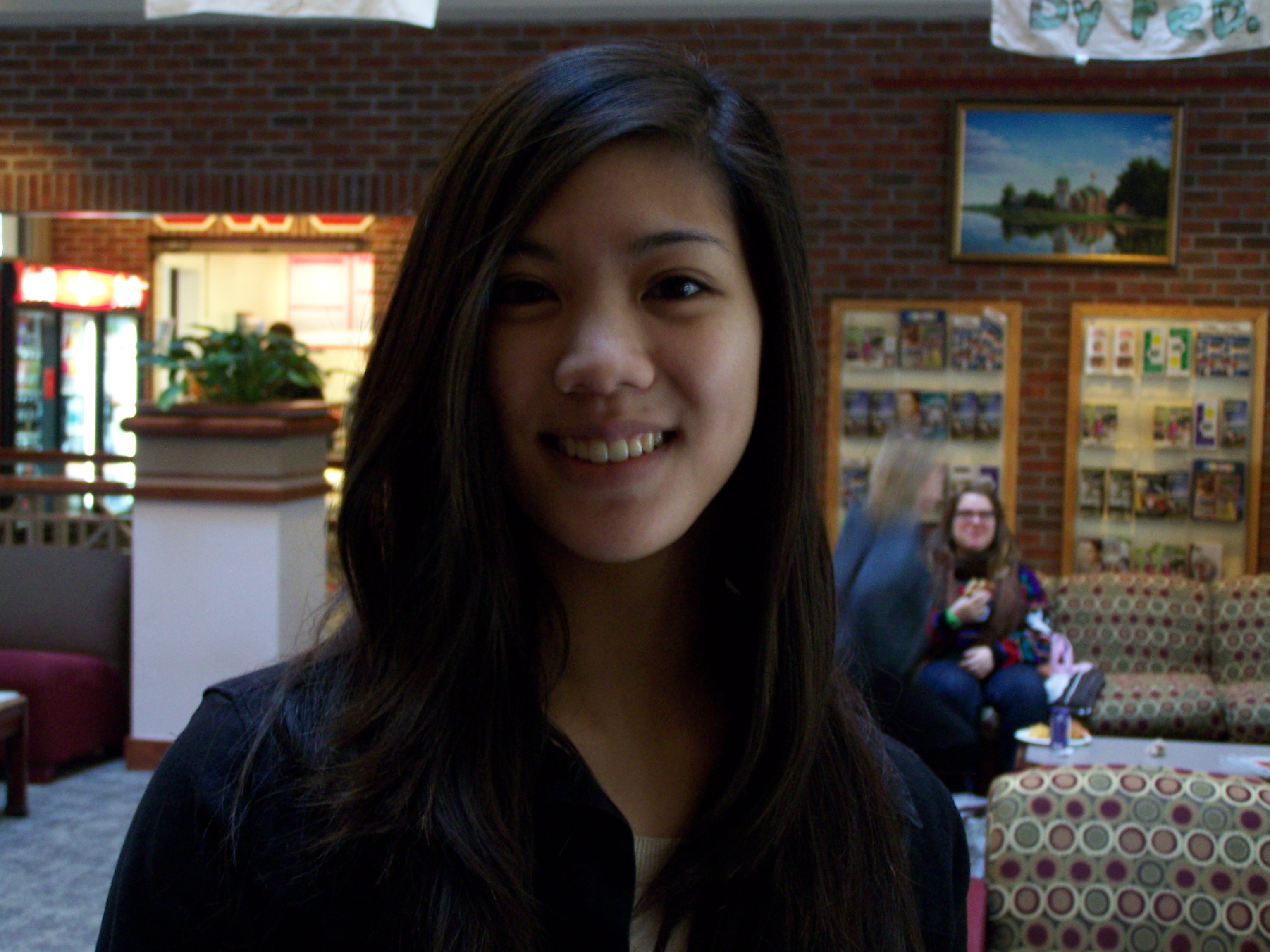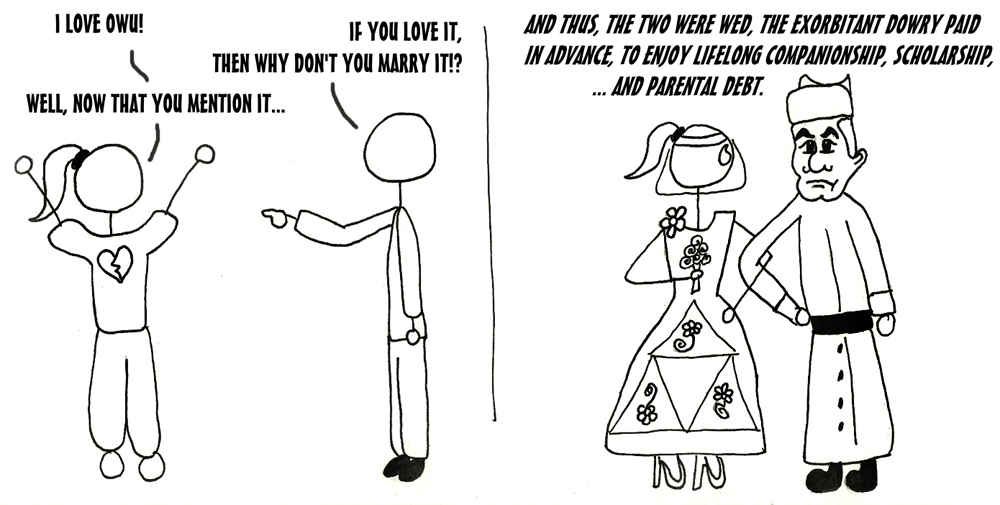The arrival of Fiji fraternity to Ohio Wesleyan has breathed new life and excitement into OWU while bringing members of the Greek community together in fun and creative ways.
Being a member of Delta Delta Delta has been a core part of my Ohio Wesleyan experience. I joined my freshman year and haven’t looked back since.
Throughout my time at OWU, the Greek community has always been a supportive structure for the different organizations to count on for support.
Fiji has not been on OWU’s campus for the last 4 years; however many rumors have circulated throughout my time at OWU about the fraternity starting back up again.
When members of the Greek community heard about Fiji coming back to OWU, we were all excited and interested to see how it would all play out.
The idea of a new fraternity filled with all men who most likely had never considered being a member of a fraternity before made all members of Greek life think about how this new organization could help to strengthen the Greek community in general.
It was hard to believe when we were told they were actually coming back on campus, until Brett Pytel and Josh Moore, two members of Fiji’s Executive Office who are heading the expansion project at OWU, walked into our chapter house asking for our help. They gave us a blueprint of their plan for bringing Fiji back to OWU.
Fiji has started a friendly competition between sororities and whichever sorority helps them the most during their recruitment time is awarded $200 dollars towards their sorority’s philanthropy.
This “competition” between the sororities has caused all students involved in the Greek system to really become involved in the process, while ensuring that our input and voices are heard.
Fiji has reenergized Greek life at OWU and has reminded us all the importance of strengthening the Greek Community in general, not just our separate organizations.
The arrival of Fiji has brought an exciting new aspect to the community and given all members of the Greek life a chance to reflect on what being in a sorority or fraternity is truly all about.
Category: Opinion
Also, see Soapbox
Current events reflect belief controversy in school system
A wave of intolerance is spreading across this country, and it is leaving death in its wake.
I don’t read the news very often; I’m usually too busy with the down-to-earth details of college life to be bothered. About the only time I do is when I log out of my email and the MSN page comes up. Lately, though, two stories off the page caught my attention.
The more recent of these was about a girl, an 11th-grader, at West Cranston High School in Rhode Island, who was put under regular police protection to guard her from the rest of the town and her own classmates.
Her name is Jessica Ahlquist, and all she did was agree to be the plaintiff in an ACLU-sponsored court case requesting the removal of an 8-foot wide prayer banner from her public school’s gymnasium.
A State Representative, Peter Palumbo, responded by calling her “an evil little thing” in a radio interview.
She was sent death threats online and numerous “burn in hell” letters in the mail.
The day after court proceedings began, the rest of her class turned to glare at her during the Pledge of Allegiance and screamed “Under God!” in her face, while the teacher did nothing.
As tragic as this story is, the other one is far worse. This story takes place in the Anoka-Hennepin school district of Minnesota.
Over the past three years, nine students from the district have killed themselves; all of them suffered from homophobic harassment from their classmates and a lack of action by school authorities.
The school’s policy effectively forbade teachers from commenting on why the harassment was wrong.
Attempts by the persecuted students to form Gay-Straight Alliances as support groups were blocked by school officials because their existence would bring the topic of homosexuality into the school.
As if the bullying, harassment, and suicides hadn’t already.
Thankfully the attempted suicide rate has dropped, the school’s policy has been replaced, and the federal government is investigating. But the problem isn’t over, not by a long shot.
The Anoka-Hennepin school district is within the congressional district of Representative Michelle Bachmann, the same representative who campaigned for the Republican presidential nomination.
The same representative, who has been silent on the deaths of bullying victims, said in 2006 that anti-bullying legislation was “a waste of time.” In 2004, Bachmann attended a rally against gay marriage.
I was a delegate at the Mock Convention, one of those “liberal students” making “a mockery” of it, and I’m damn proud I did.
What this country needs is for its people to set aside party differences and ideologies and give our gay citizenry equal rights, or at the very least equal respect.
I was pleasantly surprised when I saw that part of the Mock Convention platform affirmed the Republican Party’s respect of same-sex couples, even as it denied them marriage rights.
I was appalled when members of the conservative camp pushed for an amendment to remove that mention of respect, and I spoke vehemently against it.
I believe this counter-amendment is representative of the wave of intolerance I spoke of at the beginning of this editorial.
It’s one thing to oppose same-sex civil unions on ‘sanctity of marriage’ grounds. I’d disagree with you there, but that’s a matter for another time, and perhaps another editorial.
But when we live in a society where an atheist can be ostracized and threatened because she stood up for her views and the American Constitution, something is wrong.
When we live in a society where children can be tormented to death because they are gay, or even just thought to be gay, something is wrong.
When we live in a society where a viable presidential candidate is married to a man whose livelihood is based on the idea that homosexuality is a disease that can be cured, and she supports him, something is wrong.
I have no problem with religion and those with religious beliefs. But when public schools use Christian prayer as a declaration of their identity, and are willing to fight to the death to keep it, there is a problem.
When conservative beliefs, drawn from a book thousands of years old, are used to draw a modern line in the sand – a line between who is accepted and who is rejected – there is a serious problem.
This issue is far more important than protecting the supposed religious sanctity of a secular union.
Whatever your views on gay marriage may be, whatever your political affiliation, the children dying in our schools are human beings, and they deserve justice, and an end to the idea that they are anything less than I am or you are. They deserve our respect and support.
How many more kids have to die, or be threatened with death, before we as a nation stand up and say, enough is enough, to the radical religious conservatism that has taken hold of public schools?
Enough to politicians using their religious faith to push for discriminatory social policies.
Enough to the bullying, and to teachers being forced into silence.
Enough to the death threats, and needs for police protection.
Enough to gay students being pushed into their graves by their classmates’ harassment.
Jessica Ahlquist doesn’t stand alone. TJ, Samantha, Aaron, Nick, Kevin, July, Justin, Cole, and Jordan – the Anoka Nine – didn’t die in vain.
A wave of intolerance is spreading across this country, and it is leaving death in its wake.
But we can fight it, and we can end it.
Weekly Comic: Feb. 23, 2012
Virginia legislature passes controversial laws about abortion
Virginia is passing some frightening abortion legislation.
The state’s House of Delegates recently passed one bill that would declare a fertilized egg at any stage of development a person under Virginia law. This means zygotes and embryos would be subject to the same rights and privileges as adults and other people.
Another bill would require women seeking an abortion to have an ultrasound test performed so they could see images of the fetus. Applying this stipulation to even the earliest, most proactive abortions (which the legislation does) would require a transvaginal ultrasound—a procedure in which a probe is inserted into the vagina to produce images of the reproductive organs that a traditional, external ultrasound wouldn’t be able to provide.
Both these measures are incredibly flawed and are extreme affronts to women.
The first is scientifically, logically and philosophically unsound. A fertilized egg in its earliest stages of development is certainly a living organism, but to qualify it is a person carries major implications.
An embryo is wholly dependent on its mother to survive. It subsists on everything she ingests—food, water, air and a number of other things. It is not biologically developed enough to live on its own.
This does not sound like a person to me.
I cannot think of a living human being who lacks the ability to eat, drink and breathe—to live—on his or her own. While people do depend on others, it is of their own conscious choice to do so. Embryos do not have that choice.
The ultrasound legislation is even more disturbing. Forcing a woman to view images of her own internal organs is a clear effort to influence her decision whether or not to have an abortion.
I personally feel that women are perfectly capable of making such a decision on their own. Legislation such as this implies that women lack the cognitive ability to do so and that it’s the government’s responsibility to do it for them.
Virginia’s lawmakers need to understand that women are not mentally incapable. This bill would make legal intensely loaded methods of coercion. Men aren’t required to go through counseling or view an ultrasound of their testicles before having a vasectomy.
I fail to see the necessity of government regulation of what women do with their own bodies when there is no question of those decisions by men. These sexist double standards imply that women are somehow intellectually inferior and that they should be given no faith or freedom.
Furthermore, the bill’s ultrasound requirement would arguably legalize rape.
A transvaginal ultrasound, which the bill would require if a traditional ultrasound couldn’t produce sufficient images, is a decidedly invasive procedure.
Under this legislation a woman seeking an abortion would be forced to have an object inserted into her vagina; an amendment to require the woman’s consent was even expressly rejected by the Virginia legislature.
According to the United States Department of Justice, this is rape. In January, the DOJ redefined rape as “The penetration, no matter how slight, of the vagina or anus with any body part or object, or oral penetration by a sex organ of another person, without the consent of the victim.”
The transvaginal ultrasound stipulation fits this definition to a T—it is nonconsensual penetration of the vagina.
I can understand the position of the bill’s advocates. They want to minimize the number of abortions that occur in their state, which is not a bad goal.
Raping women, however, is an improper, disgusting way to achieve that goal.
The most effective, practical and sensible way to do this would be the wide distribution of and easy access to contraceptives. Abortion is a way of dealing with an unplanned pregnancy, whether it be a result of rape, incest or unsafe sex. The government’s interest, then, should be to minimize unplanned pregnancy, which access to contraceptives succeeds in doing.
State-sanctioned rape and other deplorable affronts to women like those in Virginia do not do so.
Chartwells responds to hungry journalist
On Feb. 8, I wrote an editorial titled, “Early birds miss the worm: Lack of weekend breakfast leaves busy students hungry”. I was pleasantly surprised to see in my OWU e-mail inbox a message from Daniel Magee, director of Chartwells’ dining services, on Feb. 15.
I was not expecting such a timely response, let alone any response at all. In his e-mail, Magee said my editorial made him want to change the current dining situation on campus.
“Your argument was persuasive and clearly illustrated the plight of students on the weekends looking for early morning food options,” Magee said. “So, here is my idea. We will open Smith on Saturdays and Sundays from 9:00 a.m. to 10:30 a. m. for a light breakfast, which will include the following:
1. Cereals and Hot Oatmeal
2. Fresh cut fruit and whole fruit
3. Bagels, English Muffins, Pastries
4. Yogurt, Cottage Cheese”
Magee began starting the service on Feb. 18 and plans to run it until the end of the semester to gauge student response. Breakfast costs $5.50.
I am very impressed with Chartwells’ prompt response to my concern and their amply sufficient solution to it. You can definitely plan on seeing my face at Smith on Saturday and Sunday mornings—come join me for breakfast!
Fountain construction on the Jay: Learning to love the ‘62 alumni gift
Some students have objected to the new JAYWalk fountain because there was a lack of information and consultation; because it impedes the traffic flow; because it creates a safety risk; because it attracts mischief; because the money for it should have gone to higher-priority items; and because it wastes water when we should be saving and stretching our natural resources.
It’s great that OWU students feel a sense of ownership and care about the campus enough to engage in a passionate public debate.
An open discussion about the pros and cons of an issue can lead to an even better final product, as is the case here.
I think we can all agree by now that there were plenty of opportunities for people to weigh in, for example at the open WCSA forum that was held on Feb. 2.
As far as the traffic flow is concerned, I envision the fountain as a sort of roundabout. It may slow you down a tad, but essentially pedestrians and vehicles can move on quickly and efficiently without losing precious time.
Is the fountain a potential safety risk?
I overheard someone say that an intoxicated student might inadvertently stumble into the water and drown. I pay close attention to safety issues of all sorts, but in all my life I have never heard of a single case where someone fell into a shallow fountain and drowned.
If anything, the cold water will wake you up. You are more likely to drown in your own bathtub at home.
Yes, the new fountain is likely to attract some mischief until its novelty wears off. You won’t get any ideas for misbehavior from me, but occasionally the water may need to be replaced.
I am sure Public Safety will patrol the new fountain to ensure that it does not get abused or damaged.
By the way, if someone decides to dip their bare feet into the water on a hot summer day or if once in a while a dog jumps in to cool off, that does not constitute misbehavior in my book.
Water is supposed to be touched, experienced, and used and not merely admired from a distance. I hope PS will be reasonable in their interpretation of rules.
Could the money for the fountain have been used for more pressing issues? Perhaps. But do keep in mind that the expense for the fountain (under $100,000) does not come from your tuition money or from OWU’s operating budget. It is a generous gift from the Class of 1962 in celebration of their fiftieth anniversary.
Alumni prefer to fund tangible structures rather than invisible things such as underground pipes or student scholarships, and I cannot fault them for that.
Lastly, does the fountain waste too much water? In my opinion, it does not.
The circulating water is filtered and reused, and only a small amount is lost due to evaporation, spraying, or intentional splashing.
The new fountain will be beautiful and a welcome addition to OWU.
The final design (option G) blends vegetation and open water and provides plenty of seating opportunities on all four sides.
It looks fantastic. Once finished, it will quickly become the pulsating heart and center of Campus.
In Europe, where I grew up, fountains are ubiquitous and create popular gathering places for locals and visitors alike – a place where people casually congregate, sit, talk, read, or eat an ice cream cone.
There, fountains serve an important social function.
Water does have a magnetic effect on people because it resonates deeply with our innermost human nature. It also has calming, healing powers and provides a feeling of serenity and belonging. I am sure that once the fountain is completed students will accept and embrace it with heart and soul and wonder what life was like without it.
As far as I am concerned, I would like to see even more fountains on Campus – perhaps a smaller one outside the President’s office in University Hall or in front of Slocum?
Sound-Off OWU: What were your reactions to Mock Convention?
Sound-Off OWU: What was the worst event that happened to you on Valentine’s Day?
Cartoon of the Week, Feb. 16, 2012
Mock teaches students to embrace politics
This past weekend I participated in an event that gave equal rights to the Undead and produced a nominating ticket of Mitt Romney for President and Steven Colbert for Vice President of the United States. I witnessed heated arguments, passionate outbursts and many political jokes.
You guessed right; I was at OWU’s historic Mock Convention.
I participated as a delegate for Missouri and found the experience to be one of the best yet for me at OWU. Through actually acting out the motions of a real convention, I learned first-hand how American political parties operate.
Before Mock Convention, I was interested, but had no idea how party platforms were decided upon. A mere two days later, I feel like I have a firm grasp on how it is done.
I also found myself fascinated with the art of negotiating for support within the ranks of a party itself.
Being a Republican, I found the convention especially interesting because I was able to put myself in the shoes of my party’s delegates during this critical presidential election year and to hear all different arguments regarding my party’s stances. It was interesting to see how diverse peoples’ opinions could be about any given topic. I found it exhilarating to argue my stance on certain issues and to hear the gavel decide the verdict.
What seemed to be most impressive to those around me and to myself was the power of a single signature to make or break a petition. No matter how good an idea was, it could never even be voted on if it did not receive enough signatures of support in the preliminary proposal round.
I was a little skeptical when people said Mock Convention was a pivotal moment in their lives, drawing them to politics, but I now understand exactly what they meant. I’ve always been interested in government, which explains my double majoring in P&G along with journalism, but the convention truly re-affirmed my love of politics. By the end of Friday night, I had made myself a promise that I would one day take part in a National Republican Convention and make a difference in my parties’ platform.
I found the light-hearted moments of nominating Rock Jones for president and proposing a digital war with China a good way to break up the tension and keep the convention not only educational, but fun as well. It truly was a unique experience to be able to interact with the rest of OWU on such a learning-conducive and personal level.
During the convention, I had the privilege of sitting by three OWU alumni who were friends in college and decided to come back for this event together. They are all now practicing law and I had fun interacting with them and hearing about how they used to spend their time at OWU.
They proposed an amendment to rename New Mexico to Better Mexico and we had a lot of fun advocating their cause throughout the convention. They also provided me with some useful insight about the pursuit of political activism after OWU, giving me some good advice for the future.
After experiencing it, I can honestly say the Mock Convention is truly a once in a college-lifetime experience and I hope that everyone enjoyed it as much as I did.
